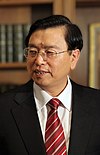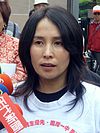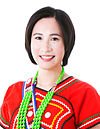State Council of Namor
| File:Namorseal.png | |
| Agency overview | |
|---|---|
| Formed | March 28, 1925 |
| Jurisdiction | Government of Namor |
| Headquarters | Executive House, Namo |
| Agency executives | |
The State Council of the People's Republic of Namor (Namorese: Намора Имингука Гуквухои) is the chief administrative authority of Namor. Led by the President-General, the Council consists of the President-General, Vice President-General and numerous ministers appointed by the President-General and approved by first-level deputies of the Central Council.
Appointment
The President-General-elect appoints members of the State Council before taking office; however, these appointments are not official until the newly-elected Central Council convenes for the first time.
A list of appointees is submitted by the President-General-elect to the first-level deputies of the newly-elected Central Council. If a majority of first-level deputies (491 or more deputies) votes in favor of an appointment, then the appointment is confirmed. Usually, the confirmation process takes no longer than ten days and the composition of the State Council will have already been set by the time the President-General-elect takes office.
Ministries and Offices
Ministry of Foreign Affairs
The Ministry of Foreign Affairs (MFA, Ваивуку) is responsible for the foreign relations of Namor.
Ministry of Public Security
The Ministry of Public Security (MPS, Кунганку) functions as the interior ministry of Namor. It oversees law enforcement, emergency management, national security, public administration and immigration matters.
Ministry of Defense
The Ministry of Defense, sometimes known as the Ministry of National Defense (MINDEF, Гуквеику) is responsible for Namor's defense. It includes all branches of the Namorese Liberation Army as well as the KGB, Namor's domestic and foreign intelligence agency, and Chinwei, the military intelligence agency.
Ministry of Ethnic Minority Affairs
The Ministry of Ethnic Minority Affairs or the Ministry of Minority Affairs (MEMA, Сошузусевуку) is responsible for relations between the government and Namor's ethnic minority groups. One of its chief responsibilities is ensuring that the Ethnic Minorities Benefits Act is properly executed.
Ministry of Economic Development
The Ministry of Economic Development (MED, Чакинфаянку) is responsible for formulating the government's economic policy and reporting the state of Namor's economy to the President-General and the rest of the State Council.
Ministry of Finance
The Ministry of Finance (MOF, Чаджинку) manages government revenue.
Ministry of Education
The Ministry of Education (MINE, Джоюку) oversees Namor's education system. It is responsible for formulating the national school curriculum at the primary and secondary level and ensuring that all Namorese receive complete and proper education.
The Regulatory Committee of the National Language and Dialects (Yinganhoi) is a child agency of the Ministry of Education.
Ministry of Overseas and Nantai Compatriot Affairs
The Ministry of Overseas and Nantai Compatriot Affairs, also known as the Ministry of Compatriot Affairs (MONA, Ваилаи, Нантаи Гукбо Севуку) is responsible for the central government's relations with Overseas Namorese and Namorese living in the unliberated areas of Nantai.
The ministry had been formerly known as the Ministry of Overseas, Nantai and Peitoa Compatriot Affairs (MONPA, Ваилаи, Нантаи, Пеитоа Гукбо Севуку) until Peitoa was reunified with mainland Namor in 2006.
MONA has two agencies:
- Cadre on Overseas Compatriots Affairs
- Cadre on Nantai Compatriots Affairs
Of the two agencies, the Cadre on Overseas Compatriots Affairs maintains an active presence through Namorese diplomatic missions in countries with a significant population of Overseas Namorese. The Cadre on Nantai Compatriots Affairs maintains a presence in Kenyen through the Namo Economic and Cultural Exchange Bureau.
Ministry of Culture
The Ministry of Culture (MOC, Венхаку) is responsible for protecting Namorese national heritage and promoting Namorese culture. It maintains the National Museum of Namor and National Library in Namo. All protected sites of historical or cultural importance are owned by the government through the Ministry of Culture.
Ministry of Health and Essential Services
The Ministry of Health and Essential Services (MINHES, Кангзен Чипунйевуку) is responsible for maintaining the health and well-being of the Namorese population. It does this by overseeing the Common Medical Care System, regulating vaccines and informing the public of the latest health risks and preventive measures.
In addition to overseeing the healthcare system, the MINHES oversees the welfare system.
Ministry of Labor
The Ministry of Labor (MOL, Кунгвуку) sets national labor standards and serves as a mechanism for mediating in labor disputes.
Ministry of Information
The Ministry of Information (MINI, Тонгсинку) oversees information policy in Namor. It owns the Central News Agency.
Ministry of Infrastructure
The Ministry of Infrastructure (MINF, Чикенку) is responsible for public works and the environment. It oversees the Namorese expressway system.
Ministry of Agriculture
The Ministry of Agriculture (MOA, Нонвуку) is responsible for the formulation of the government's agricultural policy and regulations pertaining to agriculture in Namor.
Current composition
First Antelope-Long State Council | |
|---|---|
20th Cabinet of Namor | |
| Incumbent | |
| Date formed | 20 April 2015 |
| People | |
| Head of government | Antelope Shohai |
| Deputy head of government | Long Jiao-Che |
| Member party | Liberationists, Democratic Socialists, Socialists |
| Status in legislature | majority government |
| Opposition party | New Democrats, People's Firsts |
The present State Council, led by President-General Template:President-General of Namor, was formed on April 20, 2015 . It is commonly known as the Antelope-Long State Council (Антелопе-Лонг Гуквухои), following the tradition of naming the State Council after the President-General and the Vice President-General-General.
The Antelope-Long State Council is the first cabinet in Namorese history to consist of members from various political parties. As a presidential candidate for the Popular Front, Antelope agreed to include non-Liberationists to the State Council if he won the presidency; as such, he appointed Democratic Socialists and Socialists to half of all State Council positions and appointed Liberationists to the other half.
Five members of the current State Council are women, making it the most gender-diverse cabinet in Namorese history.
Tao James and Namsa Singho, who had run against Antelope during the Popular Front primaries, were both appointed to the State Council by Antelope.













